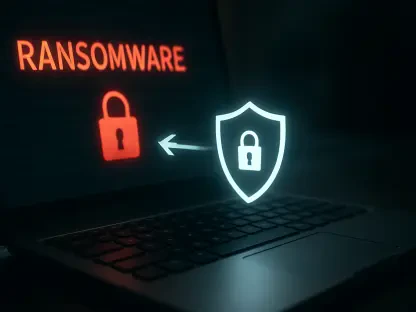In today’s digital landscape, where cyber threats evolve and privacy is often breached, safeguarding one’s online activities is more critical than ever. Proxy servers and VPNs are instrumental in this pursuit, offering distinct yet complementary methods to protect users’ digital footprints. Understanding these tools’ roles, features, and differences can help individuals and businesses make informed decisions regarding their cybersecurity strategies. This article delves into how proxy servers and VPNs function, highlighting their unique benefits and application cases to help users navigate the complex world of online privacy and security.
1. Understanding Proxy Servers and Their Functions
Proxy servers serve as intermediaries between users’ devices and the internet, effectively masking the original IP addresses to enhance anonymity. When engaging a proxy server, the user’s request is routed through the proxy, which assigns its own IP before reaching the destination website. This method not only obscures the user’s identity but also can cache data to improve access speed and can filter or log network requests based on specific configurations.
Different types of proxy servers cater to various needs. HTTP proxies handle web browser traffic, while SOCKS proxies support a broader range of traffic, albeit at slower speeds. Transparent proxies are commonly used by institutions for monitoring purposes without providing anonymity, while anonymous proxies hide users’ IP addresses without concealing the fact that a proxy is being used. Elite proxies offer the highest level of privacy by masking both the IP and proxy usage, making them ideal for those seeking comprehensive online anonymity. Understanding these classifications can aid in selecting the appropriate proxy for specific requirements.
2. Exploring VPNs and Their Core Features
Virtual Private Networks, or VPNs, provide an all-encompassing approach to internet security by encrypting entire internet connections through secure servers. Unlike proxies, which generally function on an application basis, VPNs affect all traffic from a device. This comprehensive coverage is achieved through features such as end-to-end encryption, which secures data from potential interception, and IP masking to conceal the user’s true IP address.
VPN services also offer location spoofing capabilities, allowing users to access content restricted to certain regions. Additionally, VPNs provide valuable protection against man-in-the-middle attacks when using public Wi-Fi networks, safeguarding sensitive data from unauthorized access. Such features make VPNs an essential tool for avoiding geo-blocks, ensuring secure online banking, and allowing safe access to remote business networks. Understanding these attributes can guide users in selecting a VPN service that aligns with their security and privacy needs.
3. Key Differences Between Proxies and VPNs
While both proxies and VPNs aim to provide online anonymity, they differ in their approaches, scope, and effectiveness. A significant distinction is that proxies generally do not encrypt data, with some exceptions when using secure HTTPS protocols, whereas VPNs consistently offer robust encryption typically employing AES-256-bit or better standards. This fundamental disparity affects the level of online privacy that each tool can provide.
In terms of speed, proxies often outperform VPNs due to their ability to cache content. However, the comprehensive encryption that VPNs provide can slightly slow down internet speed. Another important difference is coverage: proxies are usually app-specific, making them ideal for tasks such as web scraping or avoiding IP bans, while VPNs cover entire devices, thus offering better overall protection. Each tool has particular strengths, and recognizing these differences is crucial for selecting the right security measures tailored to distinct online activities and risks.
4. Practical Applications for Proxies and VPNs
The decision to use a proxy server or a VPN often depends on the specific needs and circumstances of the user. Proxies are particularly suited for tasks such as web scraping and SEO research, where avoiding IP bans and region-restricted content is paramount. Their cost-effective IP masking makes them an attractive option for tasks that require frequent IP address changes without the need for extensive encryption or device-wide coverage.
Conversely, VPNs are highly beneficial in scenarios that demand comprehensive security and privacy. This includes accessing public Wi-Fi networks in cafes or airports, torrenting, or streaming content that is geo-blocked. VPNs also serve a crucial role in shielding sensitive business networks from ISP tracking or throttling, making them indispensable for professionals who require a secure and consistent internet connection. By examining the nature of each task, users can determine which tool or combination of tools will best meet their online security objectives.
5. Criteria for Choosing the Right Provider
Selecting a reliable proxy server or VPN provider requires examining several critical factors to ensure maximum security and performance. For proxy services, important considerations include the diversity of the IP pool to minimize detection chances, location coverage to ensure access to desired regions, and a clear logging policy that guarantees minimal data retention. Speed and uptime are crucial for uninterrupted access, especially when the proxy is used for streaming or web scraping.
When evaluating VPN providers, encryption standards are a top priority. It’s essential to look for providers offering AES-256 encryption and reliable protocols like OpenVPN or WireGuard. Additional features like a kill switch, which instantly blocks traffic if the VPN connection drops, are vital for maintaining data security. A strict no-log policy is indispensable for ensuring true anonymity. Other factors, such as multi-device support, can be beneficial for users who need to secure multiple devices. Considering these criteria can help users choose a provider that suits their needs for privacy and reliability.
6. Integrating Proxies and VPNs in Corporate and Personal Security
Corporations and individuals can leverage proxies and VPNs effectively within their cybersecurity frameworks to protect sensitive information and enhance privacy. In corporate environments, secure remote access provided by VPNs enables employees to connect to internal networks safely, ensuring that data remains protected from external breaches. Proxies can route internal data through secured IPs, preventing data leaks and allowing businesses to enforce geo-fencing strategies to test localized content without exposure.
On a personal level, proxies and VPNs serve as fortresses against surveillance and targeted advertising by minimizing data collection and profiling. They protect communication channels, such as VoIP and online chats, from eavesdropping, maintaining privacy in personal and business communications. Additionally, in the realm of online gaming, these tools mitigate risks from DDoS attacks and unlock regional game servers. The strategic use of proxies and VPNs can thus significantly bolster cybersecurity for both businesses and individuals.
7. Looking Forward in the Realm of Online Anonymity
In today’s digital age, where cyber threats are increasingly sophisticated and breaches of privacy are common, protecting one’s online activities is vital. Proxy servers and VPNs have emerged as crucial tools to enhance cybersecurity, each offering unique yet complementary ways to safeguard digital privacy. By gaining a comprehensive understanding of how these tools work, including their roles and distinct features, individuals and businesses can make well-informed decisions to strengthen their cybersecurity tactics. Proxy servers act as intermediaries between a user’s device and the internet, hiding the user’s IP address and thus providing anonymity. VPNs, on the other hand, encrypt data and create a secure tunnel for online interactions, ensuring that user data is protected from prying eyes. This article explores how proxy servers and VPNs operate, emphasizing their individual advantages and use cases, assisting users in navigating the intricate terrain of digital privacy and security to maintain a secure online presence.









